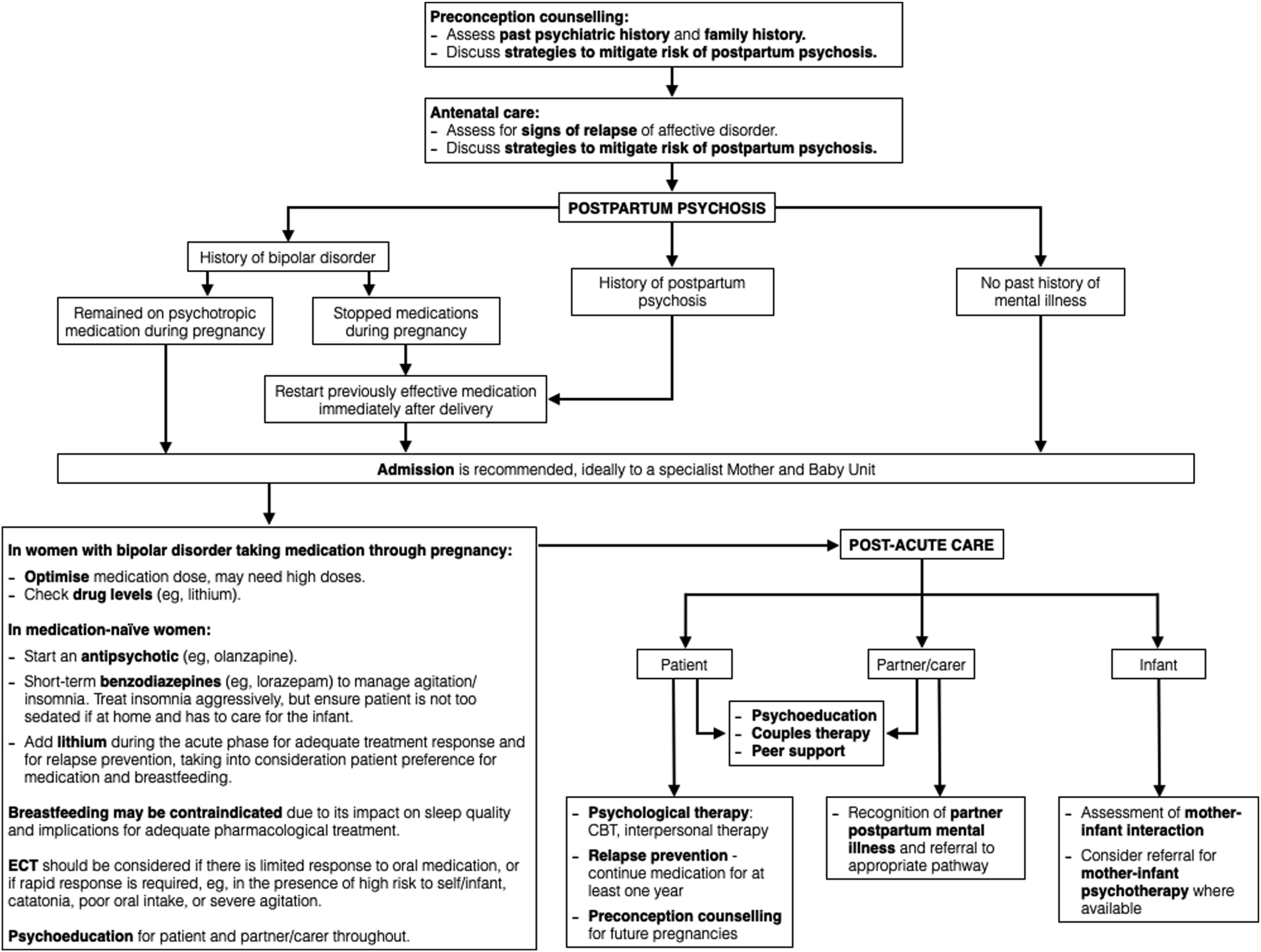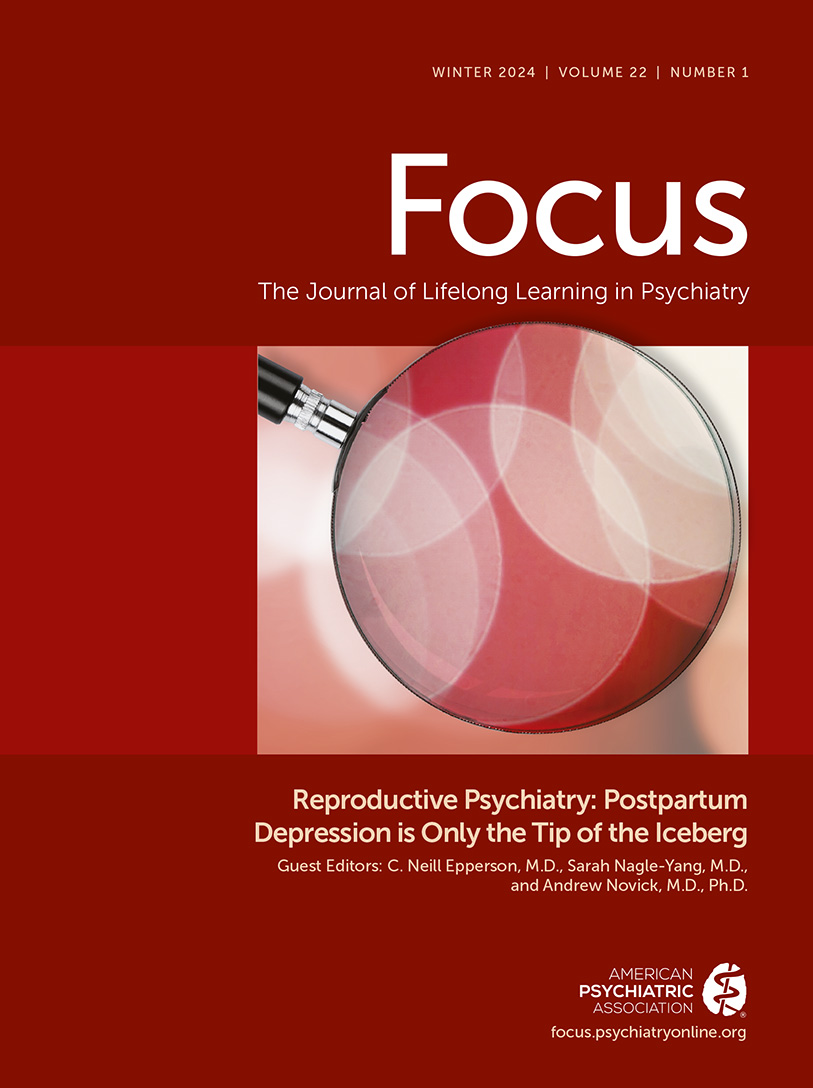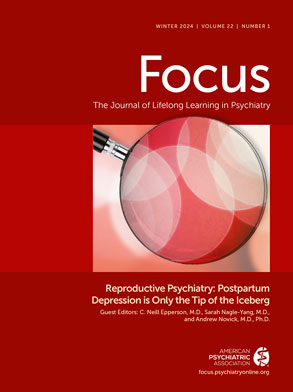Postpartum Psychosis: A Proposed Treatment Algorithm
Abstract
Background:
Methods:
Objective:
Results:
Conclusion:
Method
Clinical Presentation
Potential Consequences of Maternal PPP on the Infant
Risk Factors for PPP
Differential Diagnoses
Prevention and Prophylaxis
Screening and Prevention
Prophylaxis During Pregnancy
Prophylaxis in the Postpartum Period
Management

Assessment
Inpatient Admission
Breastfeeding
Pharmacological Treatment in the Acute Phase
Benzodiazepines and Hypnotics
Antipsychotics
Lithium and Other Mood Stabilisers
Lithium and Breastfeeding
Antidepressants
Electroconvulsive Therapy
Duration of Pharmacological Treatment
Psychosocial Support
Prognosis
Conclusion
Footnotes
References
Information & Authors
Information
Published In
History
Keywords
Authors
Competing Interests
Funding Information
Metrics & Citations
Metrics
Citations
Export Citations
If you have the appropriate software installed, you can download article citation data to the citation manager of your choice. Simply select your manager software from the list below and click Download.
For more information or tips please see 'Downloading to a citation manager' in the Help menu.
View Options
View options
PDF/EPUB
View PDF/EPUBLogin options
Already a subscriber? Access your subscription through your login credentials or your institution for full access to this article.
Personal login Institutional Login Open Athens loginNot a subscriber?
PsychiatryOnline subscription options offer access to the DSM-5-TR® library, books, journals, CME, and patient resources. This all-in-one virtual library provides psychiatrists and mental health professionals with key resources for diagnosis, treatment, research, and professional development.
Need more help? PsychiatryOnline Customer Service may be reached by emailing [email protected] or by calling 800-368-5777 (in the U.S.) or 703-907-7322 (outside the U.S.).

